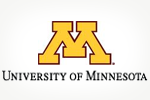Project Profile
Nanoparticle Science and Engineering
University of Minnesota at Twin Cities
Abstract
This IGERT program focuses on nanoparticle science and engineering, an inherently highly interdisciplinary field that requires researchers with a broad knowledge base of both fundamental scientific and engineering issues. The program addresses the lack of a coherent and well-organized Ph.D. training in this field. Faculty from five departments… more »
This IGERT program focuses on nanoparticle science and engineering, an inherently highly interdisciplinary field that requires researchers with a broad knowledge base of both fundamental scientific and engineering issues. The program addresses the lack of a coherent and well-organized Ph.D. training in this field. Faculty from five departments and six graduate programs at the University of Minnesota have come together to develop an interdisciplinary program transcending departmental boundaries to meet this challenge.
At the core of the educational approach is the establishment of a new graduate degree program – a freestanding graduate minor program in Nanoparticle Science and Engineering. Several new interdisciplinary core courses will be developed to offer students a coherent and comprehensive set of courses. Students enrolled in the IGERT program will participate in interdisciplinary research training in research groups that include faculty and students from various departments. Nanoparticle research will be conducted in five focus areas: Two areas will address the development of enabling computational and characterization tools. These areas will form the foundation for research in application oriented areas focusing on new materials, devices, and the environment. Exceptional career development opportunities will add to the appeal of the IGERT program. These include an internship program in corporate and government laboratories, international exchange opportunities, attendance of scientific meetings at an early stage in the career, an annual interdisciplinary symposium, leadership and technology management courses, and training in ethical conduct of research. IGERT Fellows will use the excellent infrastructure at the University of Minnesota, such as its Supercomputing Institute, its Microtechnology Laboratory, and its Characterization Facility. A unique collaboration with Florida A&M University focusing on the preparation of minority undergraduate students for graduate studies and their recruitment into the IGERT program will enable building of a diverse student body.
IGERT is an NSF-wide program intended to meet the challenges of educating Ph.D. scientists and engineers with the multidisciplinary backgrounds and the technical, professional, and personal skills needed for the career demands of the future. The program is intended to catalyze a cultural change in graduate education by establishing new, innovative models for graduate education and training in a fertile environment for collaborative research that transcends traditional disciplinary boundaries. In the fourth year of the program, awards are being made to twenty-two institutions for programs that collectively span all areas of science and engineering supported by NSF. The intellectual foci of this specific award reside in the Directorates for Engineering; Mathematical and Physical Sciences; and Education and Human Resources. « less
Contributions[?]
Project members' contributions to the library and showcase are listed here.






